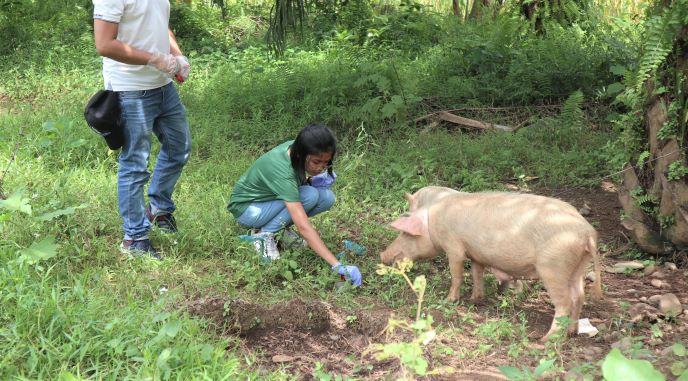Investigating how intestinal parasites that affect humans and livestock are transmitted
Neglected tropical diseases (NTDs), such as schistosomiasis, soil transmitted helminthiasis, and food and water borne helminthiasis, remain a significant public health concern in developing countries like the Philippines. They are referred to as “poverty-promoting” due to debilitating effects among individuals in the community, which contribute to perpetuating poverty. This project aims to systematically investigate the importance of zoonotic transmission and environmental reservoirs in the spread of intestinal parasites across multiple host species. Complete conception on the transmission dynamics and socio-economic effects of these intestinal parasites will provide basis for a more sustainable control strategies, if not elimination. The results of the project show remaining high to moderate prevalence and intensity of NTDs in humans and animals in selected communities of Agusan del Sur and Surigao del Norte, Caraga region, northeastern Mindanao, the Philippines. Evidence of environmental contamination was also observed while poor socio-economic conditions and low awareness about intestinal helminthiases are among the identified factors hindering success of intestinal helminth control programs in the area. Through these identified gaps and generated critical evidence, the project will develop an interdisciplinary control strategy following One Health approach to serve as basis for policy formulation. Collaboration and cooperation with different agencies and stakeholders are needed to overcome the global burden and impact of parasitic NTDs and improve the delivery of health care.
Vachel Gay V. Paller (Project Leader)
–


